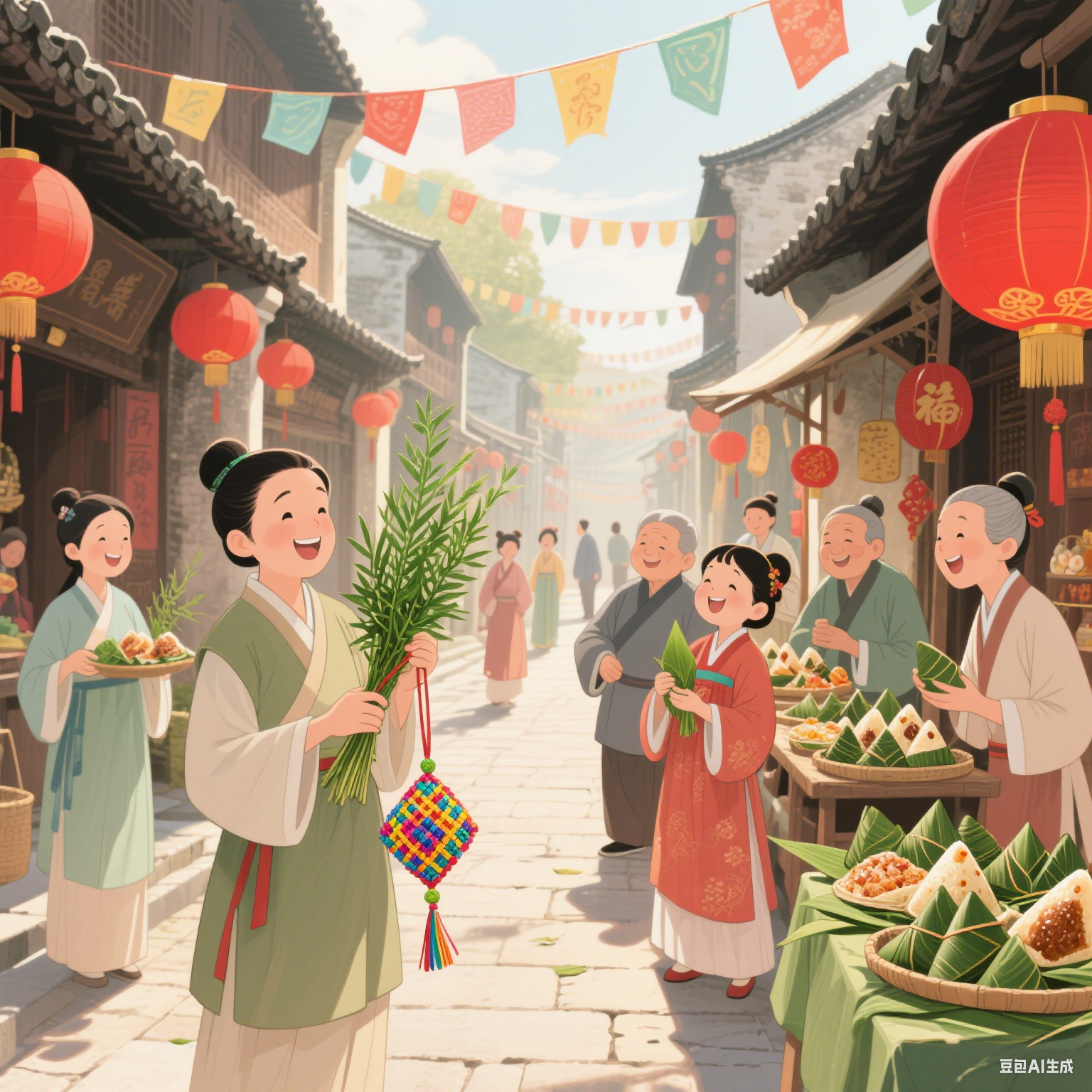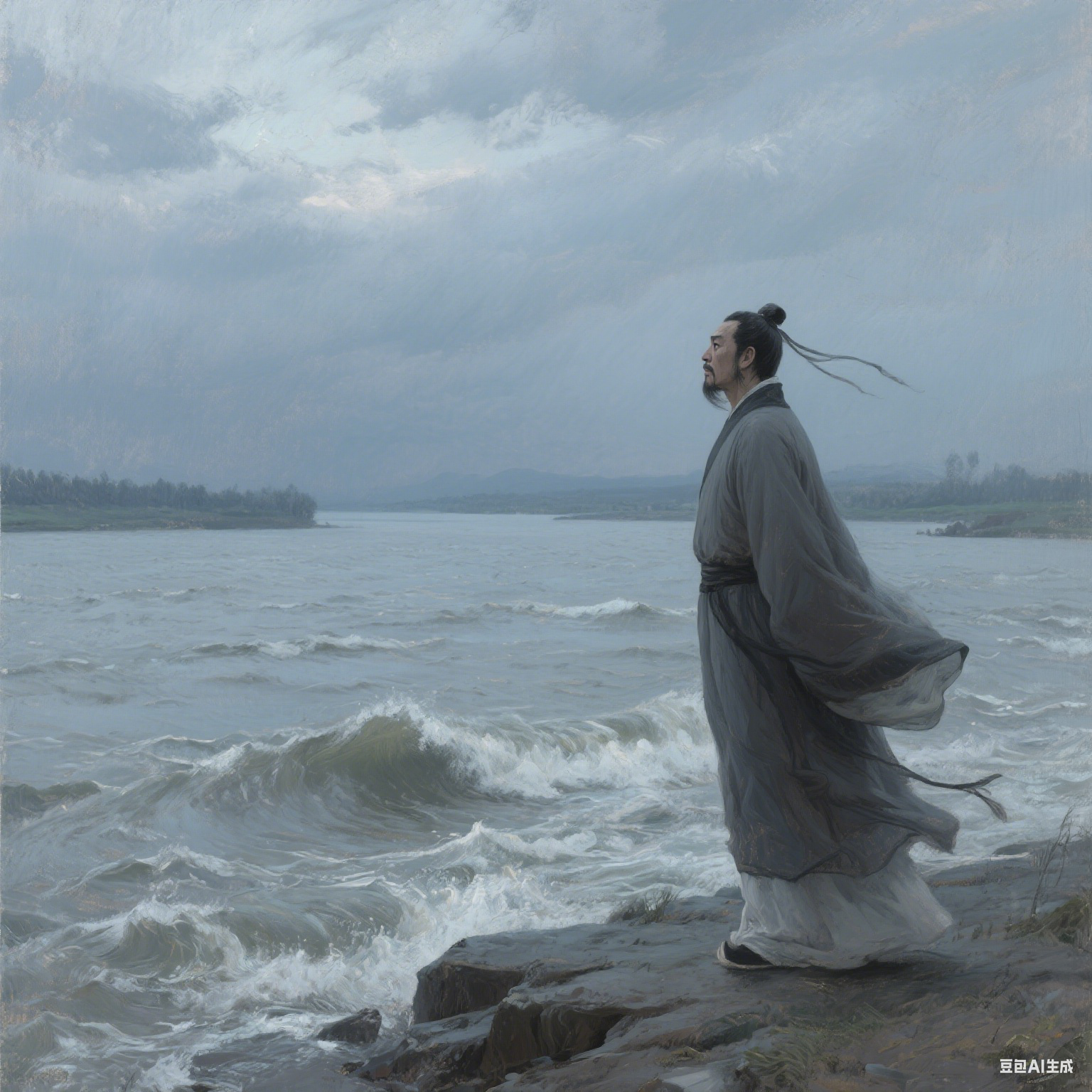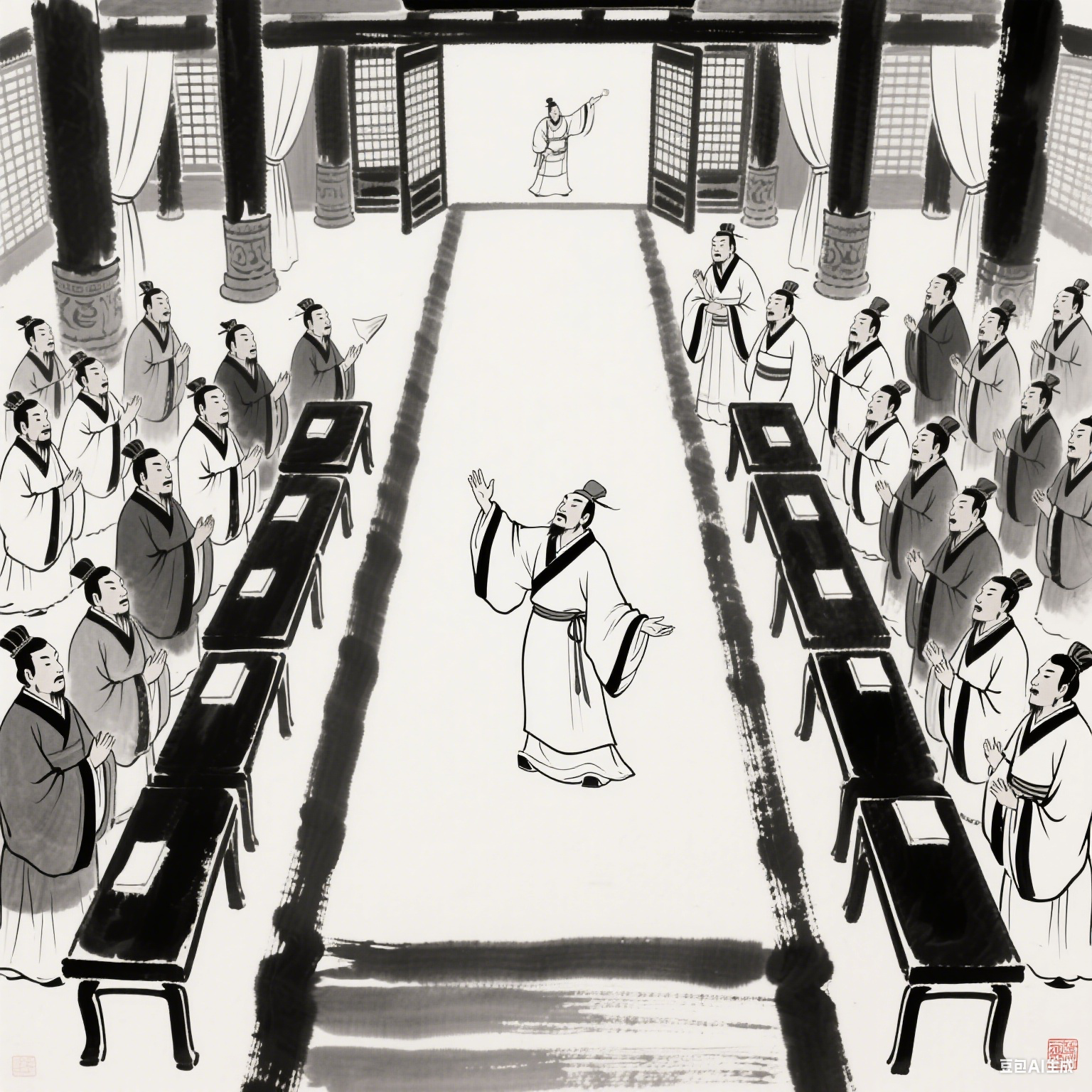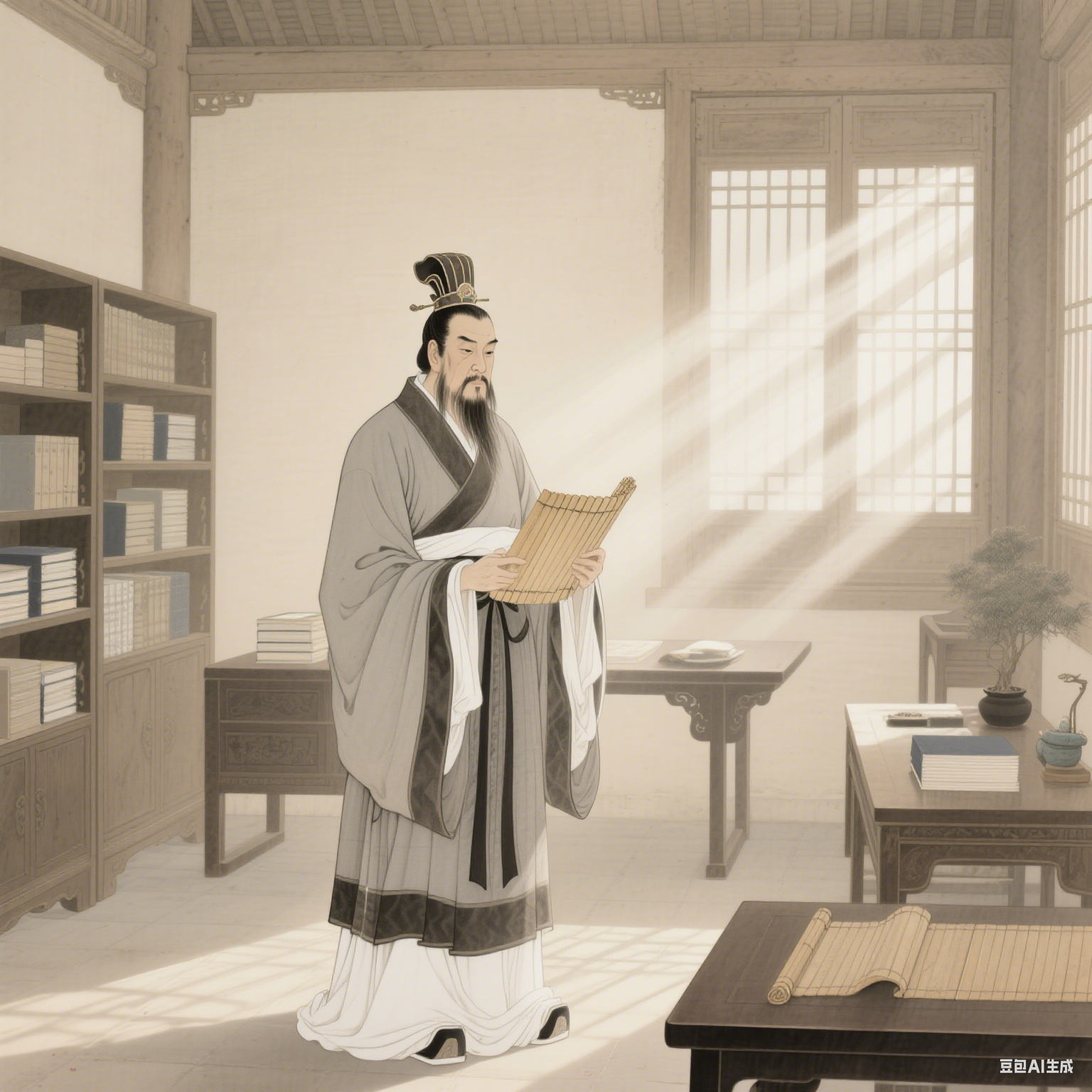The Dragon Boat Festival, also known as Duanwu Festival, is a traditional Chinese holiday that falls on the fifth day of the fifth lunar month. This date usually corresponds to late May or early June in the Gregorian calendar. The festival is rich in history and is celebrated with a variety of customs and traditions.

The Dragon Boat Festival, also known as Duanwu Festival, is a traditional Chinese holiday that falls on the fifth day of the fifth lunar month. This date usually corresponds to late May or early June in the Gregorian calendar. The festival is rich in history and is celebrated with a variety of customs and traditions.
The most well – known story associated with the Dragon Boat Festival is the legend of Qu Yuan. Qu Yuan was a patriotic poet and statesman who lived during the Warring States period (475 – 221 BC) in ancient China. He was a loyal minister to King Huai of the State of Chu. Qu Yuan was highly intelligent and had great political ambitions. He advocated for political reforms, such as promoting the appointment of capable people, strengthening the military to make the state prosperous, and forming an alliance with the State of Qi to resist the powerful State of Qin.
However, his progressive ideas and proposals were met with strong opposition from the conservative aristocrats in the court, especially Zilan, the king’s younger brother, and Jin Shang, a high – ranking official. These jealous and self – serving officials constantly slandered Qu Yuan in front of King Huai. As a result, King Huai gradually became estranged from Qu Yuan and eventually banished him from the capital city.
During his exile, Qu Yuan was deeply saddened by the political corruption and the decline of the State of Chu. Despite his hardships, he continued to write poems expressing his love for his country and his concerns about its future. His works, such as “Li Sao” (The Lament), “Jiu Ge” (Nine Songs), and “Tian Wen” (Questions to Heaven), are not only masterpieces of ancient Chinese literature but also a testament to his unwavering patriotism.
In 278 BC, the State of Qin launched a fierce attack on the State of Chu and finally captured its capital, Ying. Heartbroken by the fall of his homeland and seeing no hope for its revival, Qu Yuan, in a fit of despair, decided to end his life. On the fifth day of the fifth lunar month, he clasped a large stone in his arms and jumped into the Miluo River.
When the local people heard the news of Qu Yuan’s death, they were extremely grief – stricken. They rushed to the riverside in their boats, desperately trying to find his body. They rowed their boats up and down the river, calling out his name. This is said to be the origin of the dragon boat races that are now an integral part of the Dragon Boat Festival.
To prevent the fish and other aquatic creatures from eating Qu Yuan’s body, the people also threw balls of sticky rice wrapped in bamboo leaves into the river. They believed that by doing so, the fish would be distracted by the rice and leave Qu Yuan’s body alone. Over time, this practice evolved into the tradition of eating zongzi, which are the characteristic triangular – shaped rice dumplings that are now a staple food during the Dragon Boat Festival.
Another aspect of the festival’s origin is related to ancient beliefs and customs. In ancient times, the fifth lunar month was considered an inauspicious month, often referred to as the “month of poison.” During this time, the weather was hot and humid, making it easy for diseases and epidemics to spread. People believed that evil spirits and poisonous insects were more active during this period. So, the Dragon Boat Festival was originally a time for people to take preventive measures against diseases and drive away evil spirits. They would hang mugwort and calamus on their doors, as these plants were believed to have the power to repel evil and ward off diseases. They also drank realgar wine, thinking that it could protect them from evil and poisonous creatures.
In conclusion, the Dragon Boat Festival has a multi – faceted origin. While the legend of Qu Yuan has become the most widely – known and beloved story associated with the festival, it also combines ancient beliefs, health – related practices, and cultural traditions. Today, the festival is not only a time to remember Qu Yuan’s patriotism but also a celebration of Chinese culture, with dragon boat races, zongzi – eating, and other customs being passed down from generation to generation.
The Dragon Boat Festival, also known as Duanwu Festival, is a traditional Chinese holiday that falls on the fifth day of the fifth lunar month. This date usually corresponds to late May or early June in the Gregorian calendar. The festival is rich in history and is celebrated with a variety of customs and traditions.
The most well – known story associated with the Dragon Boat Festival is the legend of Qu Yuan. Qu Yuan was a patriotic poet and statesman who lived during the Warring States period (475 – 221 BC) in ancient China. He was a loyal minister to King Huai of the State of Chu. Qu Yuan was highly intelligent and had great political ambitions. He advocated for political reforms, such as promoting the appointment of capable people, strengthening the military to make the state prosperous, and forming an alliance with the State of Qi to resist the powerful State of Qin.
However, his progressive ideas and proposals were met with strong opposition from the conservative aristocrats in the court, especially Zilan, the king’s younger brother, and Jin Shang, a high – ranking official. These jealous and self – serving officials constantly slandered Qu Yuan in front of King Huai. As a result, King Huai gradually became estranged from Qu Yuan and eventually banished him from the capital city.
During his exile, Qu Yuan was deeply saddened by the political corruption and the decline of the State of Chu. Despite his hardships, he continued to write poems expressing his love for his country and his concerns about its future. His works, such as “Li Sao” (The Lament), “Jiu Ge” (Nine Songs), and “Tian Wen” (Questions to Heaven), are not only masterpieces of ancient Chinese literature but also a testament to his unwavering patriotism.
In 278 BC, the State of Qin launched a fierce attack on the State of Chu and finally captured its capital, Ying. Heartbroken by the fall of his homeland and seeing no hope for its revival, Qu Yuan, in a fit of despair, decided to end his life. On the fifth day of the fifth lunar month, he clasped a large stone in his arms and jumped into the Miluo River.
When the local people heard the news of Qu Yuan’s death, they were extremely grief – stricken. They rushed to the riverside in their boats, desperately trying to find his body. They rowed their boats up and down the river, calling out his name. This is said to be the origin of the dragon boat races that are now an integral part of the Dragon Boat Festival.
To prevent the fish and other aquatic creatures from eating Qu Yuan’s body, the people also threw balls of sticky rice wrapped in bamboo leaves into the river. They believed that by doing so, the fish would be distracted by the rice and leave Qu Yuan’s body alone. Over time, this practice evolved into the tradition of eating zongzi, which are the characteristic triangular – shaped rice dumplings that are now a staple food during the Dragon Boat Festival.
Another aspect of the festival’s origin is related to ancient beliefs and customs. In ancient times, the fifth lunar month was considered an inauspicious month, often referred to as the “month of poison.” During this time, the weather was hot and humid, making it easy for diseases and epidemics to spread. People believed that evil spirits and poisonous insects were more active during this period. So, the Dragon Boat Festival was originally a time for people to take preventive measures against diseases and drive away evil spirits. They would hang mugwort and calamus on their doors, as these plants were believed to have the power to repel evil and ward off diseases. They also drank realgar wine, thinking that it could protect them from evil and poisonous creatures.
In conclusion, the Dragon Boat Festival has a multi – faceted origin. While the legend of Qu Yuan has become the most widely – known and beloved story associated with the festival, it also combines ancient beliefs, health – related practices, and cultural traditions. Today, the festival is not only a time to remember Qu Yuan’s patriotism but also a celebration of Chinese culture, with dragon boat races, zongzi – eating, and other customs being passed down from generation to generation.

The most well – known story associated with the Dragon Boat Festival is the legend of Qu Yuan. Qu Yuan was a patriotic poet and statesman who lived during the Warring States period (475 – 221 BC) in ancient China. He was a loyal minister to King Huai of the State of Chu. Qu Yuan was highly intelligent and had great political ambitions. He advocated for political reforms, such as promoting the appointment of capable people, strengthening the military to make the state prosperous, and forming an alliance with the State of Qi to resist the powerful State of Qin.
However, his progressive ideas and proposals were met with strong opposition from the conservative aristocrats in the court, especially Zilan, the king’s younger brother, and Jin Shang, a high – ranking official. These jealous and self – serving officials constantly slandered Qu Yuan in front of King Huai. As a result, King Huai gradually became estranged from Qu Yuan and eventually banished him from the capital city.
During his exile, Qu Yuan was deeply saddened by the political corruption and the decline of the State of Chu. Despite his hardships, he continued to write poems expressing his love for his country and his concerns about its future. His works, such as “Li Sao” (The Lament), “Jiu Ge” (Nine Songs), and “Tian Wen” (Questions to Heaven), are not only masterpieces of ancient Chinese literature but also a testament to his unwavering patriotism.
In 278 BC, the State of Qin launched a fierce attack on the State of Chu and finally captured its capital, Ying. Heartbroken by the fall of his homeland and seeing no hope for its revival, Qu Yuan, in a fit of despair, decided to end his life. On the fifth day of the fifth lunar month, he clasped a large stone in his arms and jumped into the Miluo River.
When the local people heard the news of Qu Yuan’s death, they were extremely grief – stricken. They rushed to the riverside in their boats, desperately trying to find his body. They rowed their boats up and down the river, calling out his name. This is said to be the origin of the dragon boat races that are now an integral part of the Dragon Boat Festival.
To prevent the fish and other aquatic creatures from eating Qu Yuan’s body, the people also threw balls of sticky rice wrapped in bamboo leaves into the river. They believed that by doing so, the fish would be distracted by the rice and leave Qu Yuan’s body alone. Over time, this practice evolved into the tradition of eating zongzi, which are the characteristic triangular – shaped rice dumplings that are now a staple food during the Dragon Boat Festival.
Another aspect of the festival’s origin is related to ancient beliefs and customs. In ancient times, the fifth lunar month was considered an inauspicious month, often referred to as the “month of poison.” During this time, the weather was hot and humid, making it easy for diseases and epidemics to spread. People believed that evil spirits and poisonous insects were more active during this period. So, the
Dragon Boat Festival was originally a time for people to take preventive measures against diseases and drive away evil spirits. They would hang mugwort and calamus on their doors, as these plants were believed to have the power to repel evil and ward off diseases. They also drank realgar wine, thinking that it could protect them from evil and poisonous creatures.
In conclusion, the Dragon Boat Festival has a multi – faceted origin. While the legend of Qu Yuan has become the most widely – known and beloved story associated with the festival, it also combines ancient beliefs, health – related practices, and cultural traditions. Today, the festival is not only a time to remember Qu Yuan’s patriotism but also a celebration of Chinese culture, with dragon boat races, zongzi – eating, and other customs being passed down from generation to generation.
Post time: May-30-2025



